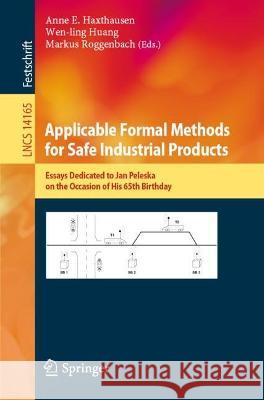Applicable Formal Methods for Safe Industrial Products » książka
topmenu
Applicable Formal Methods for Safe Industrial Products
ISBN-13: 9783031401312 / Angielski / Miękka / 2023
This Festschrift, dedicated to Jan Peleska on the occasion of his 65th birthday, contains papers written by many of his closest collaborators in academic and industry research. After studying mathematics at the University of Hamburg, Jan worked with Philips and Deutsche System-Technik on fault-tolerant systems, distributed systems, database systems, and safety-critical embedded systems. Since 1994 he has worked as a consultant to industry, specializing in development methods, verification, validation and test of safety-critical systems, and since 1995 he has been a Professor of Computer Science at the University of Bremen. In his research he has been most interested in the combination and application of existing methods and corresponding tools to real-world problems, particularly in the field of safety-critical embedded systems and distributed systems, including avionics and railway control systems. The papers in this volume reflect those interests, and the impact he has had on colleagues and collaborators. The volume is structured into sections on testing; railway verification and safety & security; intelligent systems and cyber-physical systems; and tools and techniques for specification, verification and code generation.











